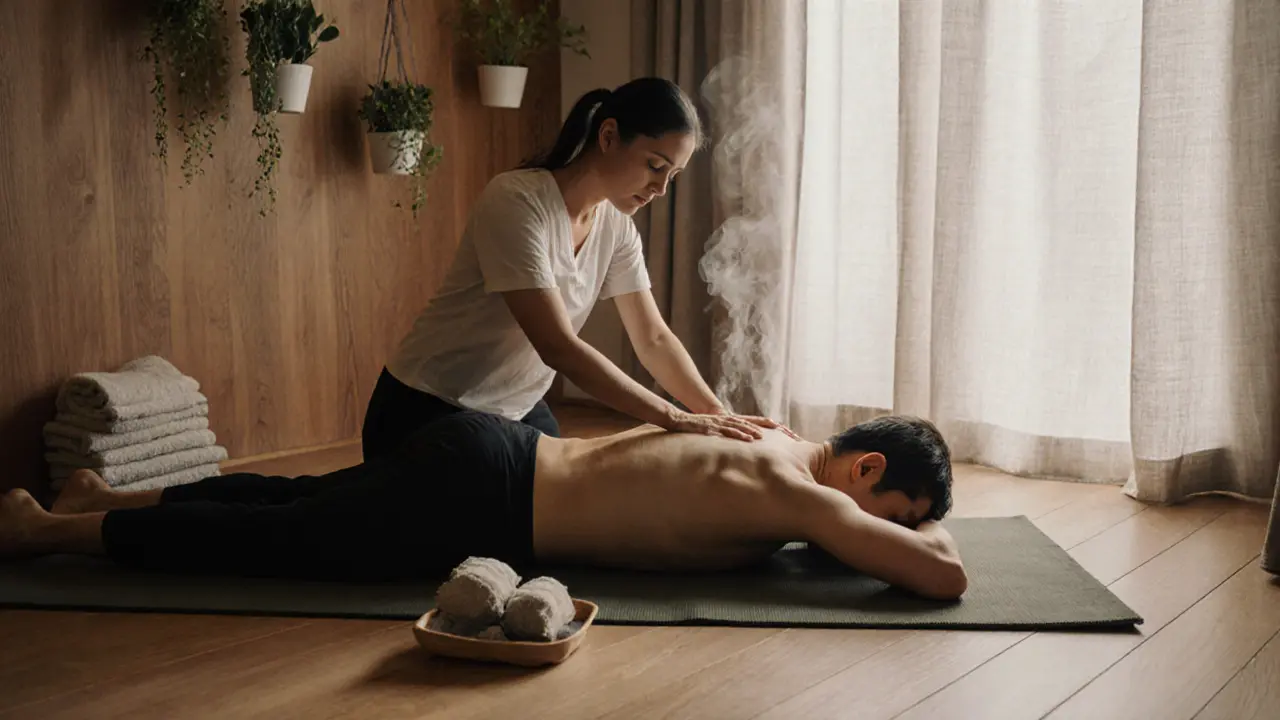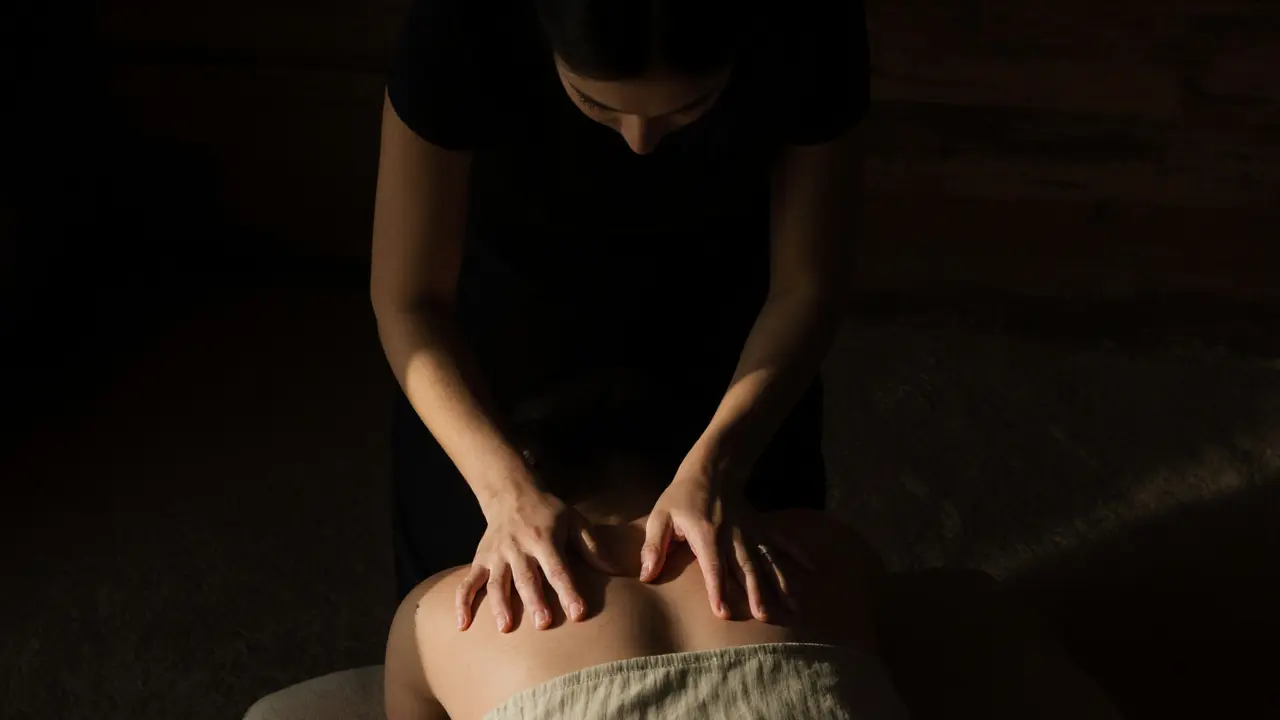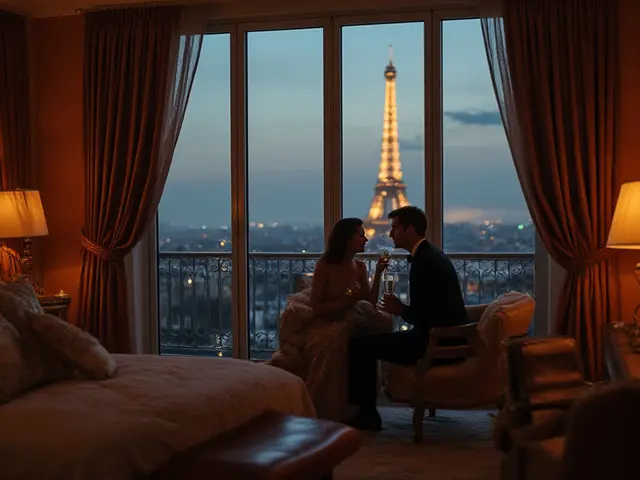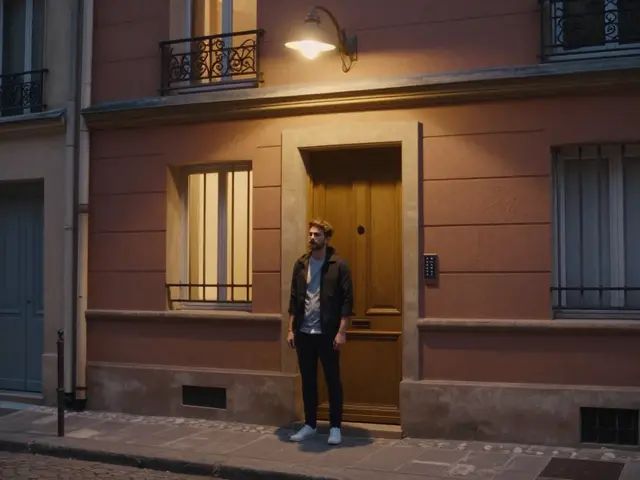Current Trends in Massage in Paris 13

When you walk into a massage studio in Paris 13, you don’t just get a rubdown-you step into a quiet revolution. Over the last two years, the massage scene here has shifted from simple relaxation to something deeper: a blend of ancient techniques, science-backed recovery, and cultural mindfulness. This isn’t just about easing sore muscles anymore. It’s about resetting your nervous system, reconnecting with your body, and finding calm in one of the busiest arrondissements in the city.
Thai Massage Is No Longer Just a Trend-It’s a Routine
Thai massage used to be something tourists tried once and forgot. Now, it’s a weekly ritual for office workers, artists, and even teachers in the 13th. Why? Because it works differently. Unlike Swedish massage, which focuses on kneading, Thai massage uses rhythmic compression, acupressure, and assisted yoga stretches. You stay fully clothed. No oils. Just pressure points and movement.
Studios like La Maison du Bien-Être a Thai massage studio in the 13th arrondissement offering full-body sessions with traditional techniques and herbal compresses have doubled their client base since 2023. Their most common client? A 38-year-old software engineer who comes every Thursday after work. "I used to go to the gym to release stress," he told me. "Now I go to Thai massage to reset my brain."
What’s new? Many places now offer Thai + Qi Gong combos-adding breathwork and energy flow exercises after the session. It’s not just physical. It’s a full sensory reset.
Aromatherapy Is Getting Personal
Essential oils aren’t just lavender and eucalyptus anymore. In Paris 13, therapists are crafting custom blends based on your mood, sleep patterns, even your stress triggers. One studio, Senteur du Corps a boutique aromatherapy massage studio in the 13th offering personalized essential oil blends based on client biofeedback and emotional state, uses a short digital questionnaire before each session. You answer questions like: "Do you feel mentally foggy?" or "Do you wake up with tension in your jaw?" Then they mix your oil-maybe bergamot for anxiety, vetiver for grounding, or chamomile for inflammation.
It’s not gimmicky. A 2024 study from the Paris Institute of Complementary Medicine found clients using personalized aromatherapy reported 47% better sleep quality after four sessions compared to those using standard blends. That’s not placebo. That’s chemistry meeting care.
Recovery Massage Is for Athletes-and Everyone Else
You don’t have to be a marathon runner to need recovery massage. If you stand all day at a café, sit hunched over a laptop, or carry groceries up five flights of stairs, your muscles are holding tension. That’s where recovery massage comes in.
Techniques like myofascial release and percussion therapy (using tools like massage guns) are now common in Paris 13 studios. But here’s the twist: they’re not just for post-workout. People use them before bed to loosen tight hips, after a long flight to prevent stiffness, or even after a stressful meeting to calm the nervous system.
At Recover Paris 13 a recovery-focused massage studio in the 13th arrondissement offering myofascial release, percussion therapy, and targeted stretching for urban professionals, 62% of clients are not athletes. They’re parents, librarians, delivery drivers. One woman in her 60s told me she comes every two weeks because "my knees feel lighter afterward. Like I forgot I was old."

Men Are Asking for Massage-And Not Just for Sex
Five years ago, men in Paris 13 would walk into a spa and ask, "Is this just for women?" Today, they walk in and say, "Do you do deep tissue with hot stones?"
There’s been a 210% increase in male clients at massage studios in the 13th since 2022, according to a local business survey. Why? Social media. Podcasts. Men are talking about mental health. They’re learning that massage isn’t weakness-it’s maintenance.
Studios are adapting. More men’s-specific packages: focus on shoulders, lower back, and neck. No flowers. No soft lighting. Just clean lines, dark wood, and strong pressure. One studio even added a "Workout Recovery" hour-30 minutes of deep tissue, 20 minutes of foam rolling, 10 minutes of breathing. No chitchat. Just results.
The Quiet Rise of Silent Massage
Some places in Paris 13 have gone completely silent. No music. No talking. No therapist asking, "How’s that pressure?"
It sounds strange, but it’s growing. Clients report feeling more present. More connected to their own bodies. The therapist moves slowly, intuitively, reading tension without words. It’s like meditation with hands.
At Silence & Skin a minimalist massage studio in Paris 13 offering silent, intuitive bodywork with no music, no conversation, and no expectations, sessions are booked 3-4 weeks in advance. People come here to unplug. Not just from their phones-from their thoughts.
One client, a graphic designer, said: "I spent 10 years trying to quiet my mind. This is the first time I didn’t have to try. My body did it for me."

What’s Not Working Anymore
Not every trend is sticking. Traditional "romantic couple’s massage" with candlelight and champagne? Almost gone. People don’t want theatrics. They want results.
Also fading: the "15-minute neck rub" at train stations. Too shallow. Too rushed. Clients now expect at least 60 minutes of focused work. And they’re willing to pay €80-€100 for it.
Even the old-school "Swedish massage" is evolving. It’s no longer just long strokes. It’s Swedish + trigger point + breath coaching. If a studio still offers just "relaxation massage" without a clear method, they’re falling behind.
How to Choose the Right Place in Paris 13
Not all massage studios are created equal. Here’s what to look for:
- Ask about technique-not just "Do you do deep tissue?" but "What’s your training background?" Look for certifications in Thai, Shiatsu, or myofascial release.
- Check the space-Is it clean? Quiet? Do they have separate rooms? No shared spaces.
- Read reviews for specifics-Not "Great massage!" but "Therapist noticed my tight shoulders from typing and fixed them in 20 minutes."
- Try a 60-minute session first-Shorter sessions rarely deliver real change.
- Trust your body-If you feel pressured to buy a package, walk out. Good therapists don’t push sales.
There’s no magic spot. But if you find a therapist who listens, adapts, and doesn’t talk over your silence-you’ve found your place.
What’s Next?
The next wave? Massage with biofeedback. Some studios are testing wearable sensors that measure heart rate variability during sessions. The therapist sees your stress levels drop in real time and adjusts pressure accordingly. It’s still rare, but it’s coming.
Also, more studios are partnering with physiotherapists and psychologists. You can now book a massage + 15-minute talk with a therapist who specializes in work stress. It’s not therapy. But it’s close.
Paris 13 isn’t just keeping up with massage trends. It’s redefining them. This isn’t about luxury. It’s about survival. In a city that never sleeps, people are learning how to truly rest.
What’s the most popular type of massage in Paris 13 right now?
Thai massage is the most popular, especially when combined with breathwork or herbal compresses. It’s not just about relaxation-it’s about movement, energy flow, and deep tissue release. Many clients come weekly for recovery and stress management.
How much does a massage cost in Paris 13?
A 60-minute session typically costs between €70 and €100. Premium studios with specialized techniques (like aromatherapy customization or biofeedback) can go up to €120. Shorter 30-minute sessions are rare now and usually only offered as add-ons.
Do I need to book in advance?
Yes, especially for popular studios or silent massage sessions. Most places book out 1-2 weeks ahead. Walk-ins are rare, and if you find one, the therapist is likely overworked. Booking ahead ensures you get the right time and therapist for your needs.
Is massage in Paris 13 safe for pregnant women?
Yes, but only with therapists trained in prenatal massage. Many studios in the 13th now offer dedicated prenatal sessions using side-lying positions and gentle pressure. Avoid deep tissue or hot stones during pregnancy. Always inform your therapist you’re pregnant before the session begins.
Can I get a massage if I have chronic pain?
Absolutely-but be upfront. Therapists in Paris 13 are used to working with clients who have back pain, arthritis, or nerve issues. Look for studios that mention "therapeutic" or "recovery" massage. Avoid places that only advertise "relaxation." A good therapist will adapt pressure and technique to your condition, not push through pain.
What you’re feeling now-the tiredness, the stiffness, the mental fog-isn’t normal. It’s your body asking for space. In Paris 13, massage isn’t a luxury anymore. It’s the quiet way people are learning to live again.





